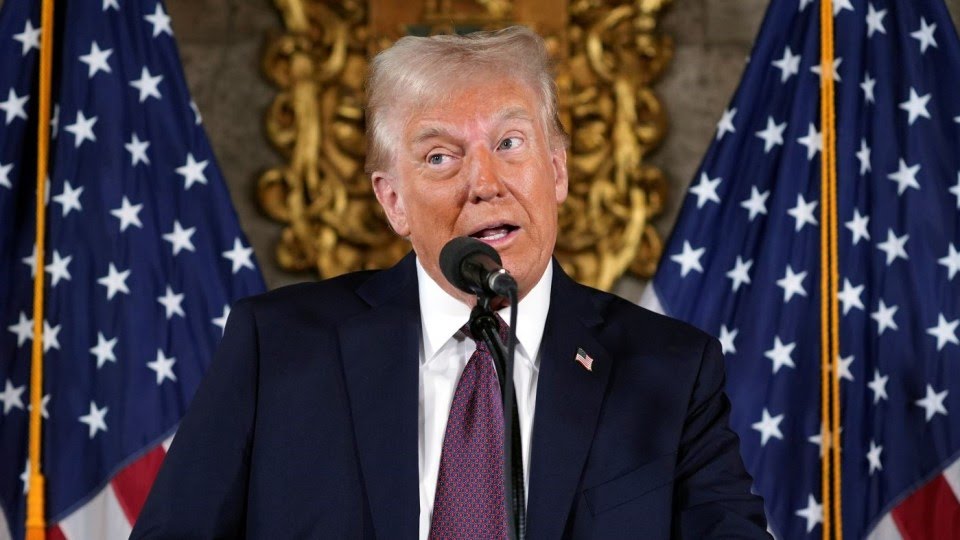In a benumbing disclosure, a United States Congressman, Scott Perry, has thrown up a spectre of United States government funds being used to oil the activities of terrorist organisations, including Boko Haram.
Many Nigerians had for years pointed accusing fingers in the direction of western powers for the intractable problem of terrorism in the North-East. Until now, no concrete or direct information has been made available on the destabilising role.
Perry, a Republican representing Pennsylvania, claimed that US aid agency, United States Agency for International Development (USAID), funneled funds to the notorious insurgent group, Boko Haram.
At the inaugural hearing of the Subcommittee on Delivering on Government Efficiency on Thursday, Perry said: “Who gets some of that money? Does that name ring a bell to anybody in the room? Because your money, your money, $697 million annually, plus the shipments of cash funds in Madrasas, ISIS, Al-Qaeda, Boko Haram, ISIS Khorasan, terrorist training camps. That’s what it’s funding.”
Perry added, ” If you think that the programme under Operation Enduring Sentinel entitled Women’s Scholarship Endowment, which receives $60 million annually, or the Young Women Lead, which gets about $5 million annually, is going to women who, by the way, if you read the Inspector General’s report, is telling you that the Taliban does not
allow women to speak in public, yet somehow you’re believing, and American people are supposed to believe, that this money is going for the betterment of the women in Afghanistan. It is not.
“You are funding terrorism, and it’s coming through USAID. And it’s not just Afghanistan, because Pakistan’s right next door.
“USAID spent $840 million in the last year, the last 20 years, on Pakistan’s education-related programme. It includes $136 million to build 120 schools, of which there is zero evidence that any of them were built. Why would there be any evidence? The Inspector General can’t get in to see them.
“But you know what? We doubled down and spent $20 million from USAID to create educational television programs for children unable to attend the physical school. Yeah, they can’t attend it, because it doesn’t exist. You paid for it.
“Somebody else got the money. You are paying for terrorism. This has got to end.”
Since Donald Trump took over as President, he has not hidden his desire to shrink government, specifically ordering the closure of USAID, which one of his right-hand men, billionaire Elon Musk, claims did dirty jobs for the US Central Intelligence Agency (CIA).
Musk was appointed to head the Department of Government Efficiency (DOGE) to “dismantle government bureaucracy, slash excessive regulations, cut wasteful expenditures, and restructure federal agencies — essential to the ‘Save America’ movement. This will send shockwaves through the system, and anyone involved in government waste, which is a lot of people!”
In the last few weeks USAID has suffered extensive exposure and excessive criticism, while there have been calls for the probe of its $2.8 billion funding to Nigeria. The total amount to Nigeria in the nine years between 2014 and 2023 is said to be in the region of $8 billion.
There have been calls for investigation into how this huge sum was spent, with some analysts calling for a list of beneficiaries.
A media report said USAID allocated approximately $2.8bn to Nigeria between 2022 and 2024, according to data from the United States Foreign Assistance Dashboard.
The platform serves as the primary source for budgetary and financial data from U.S. government agencies managing foreign assistance portfolios.
Data from Financial Aid showed that in 2024, the agency disbursed a total of $41bn to no fewer than 206 countries, including Nigeria, which received $780m.
In 2023, USAID allocated $72bn to 209 countries, with $1bn disbursed to Nigeria. Similarly, in 2022, the agency released $74bn to fund 21,000 programs in at least 212 countries, and Nigeria received $970m.
Over the three years, Nigeria received a total of $2.75bn from USAID. Of this, $1.469bn was allocated for health, $887m for humanitarian services, $141.77m for economic development, $41.75m for education, and $16.39m for peace and security, with the remaining funds directed toward program support, democracy, human rights, governance, and other sectors.


